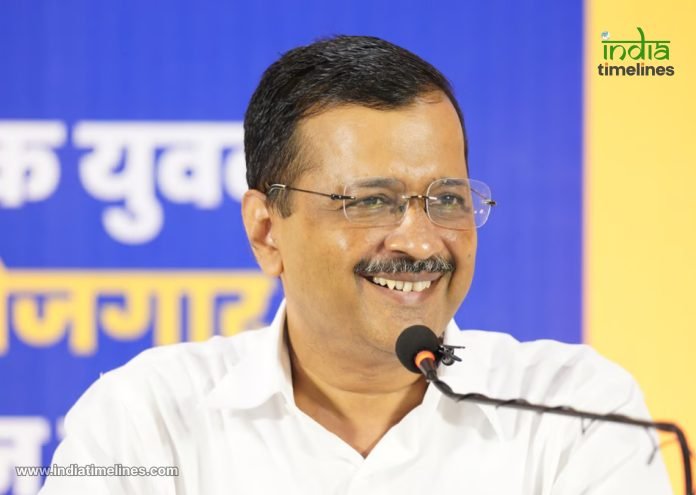
In recent years, Public Interest Litigation (PIL) has emerged as a powerful tool for citizens to seek judicial intervention in matters of public concern. One such case that has garnered significant attention is the ongoing legal battle concerning Arvind Kejriwal, the Chief Minister of Delhi. This article provides an overview of the third petition filed against Kejriwal and the subsequent proceedings in the Delhi High Court.
Visit us for more Updates: Indiatimelines
Previous Petitions
Arvind Kejriwal, a prominent political figure, has faced multiple petitions challenging his tenure as Chief Minister. The previous petitions have raised various allegations, ranging from administrative misconduct to corruption charges. Despite the legal battles, Kejriwal has managed to retain his position through judicial scrutiny.
Details of the Third Petition
The latest petition filed against Arvind Kejriwal brings forth fresh allegations and demands his removal from office. The petition, filed by a group of concerned citizens, highlights instances of alleged maladministration and misconduct by the Chief Minister. Grounds for filing the petition include accusations of negligence, mismanagement of public funds, and failure to address key issues affecting the citizens of Delhi.
Legal Arguments
The petition presents a detailed analysis of the legal grounds for seeking Kejriwal’s removal from office. It cites relevant laws and constitutional provisions to support its claims. Legal experts have weighed in on the matter, offering their perspectives on the merits of the case and the likelihood of success in court.
Delhi High Court’s Response
Upon receiving the petition, the Delhi High Court has initiated proceedings to review the allegations against Arvind Kejriwal. Scheduled hearings have been set to allow both the petitioners and the respondents to present their arguments before the court. The High Court’s response to the petition is awaited with anticipation from both sides of the legal battle.
Media and Public Reaction
The case has garnered significant media attention, with news outlets covering the proceedings extensively. Public opinion on social media platforms and public forums has been divided, with some supporting the petitioners’ cause while others defend Kejriwal’s actions as Chief Minister. The media frenzy surrounding the case reflects the public’s interest in matters of governance and accountability.
Political Ramifications
The outcome of the case holds significant implications for Arvind Kejriwal’s political career and the future of the Aam Aadmi Party (AAP). A favorable ruling for the petitioners could tarnish Kejriwal’s reputation and weaken his position within the party. Conversely, a dismissal of the petition could bolster Kejriwal’s standing and solidify his leadership.
Judicial Precedents
The case draws parallels with similar instances of PILs filed against public officials in the past. Previous rulings by the judiciary provide valuable insights into the possible outcomes of the current case. Legal experts analyze these precedents to gauge the potential trajectory of the proceedings and anticipate the High Court’s decision.
Role of PIL in Democracy
Public Interest Litigation plays a crucial role in upholding democratic values and ensuring accountability in governance. By empowering citizens to seek judicial intervention in matters of public concern, PILs serve as a check on executive power and promote transparency and fairness in decision-making processes. The judiciary’s role in adjudicating PILs underscores its commitment to upholding the rule of law and protecting citizens’ rights.
Challenges and Criticisms
Despite its noble intentions, the PIL mechanism is not without its challenges and criticisms. Critics argue that PILs are often used as a tool for vested interests to pursue their agenda, leading to frivolous litigation and judicial activism. The judiciary faces the daunting task of balancing the need for accountability with the risk of judicial overreach.
Future Implications
The outcome of the case against Arvind Kejriwal will have far-reaching implications for governance and politics in India. Depending on the court’s ruling, the case could set a precedent for future PILs against public officials and shape the dynamics of political discourse in the country. Regardless of the verdict, the case serves as a reminder of the importance of transparency, accountability, and the rule of law in a democratic society.
Conclusion
The third petition to remove Arvind Kejriwal as Chief Minister underscores the power of Public Interest Litigation in holding elected officials accountable for their actions. As the case unfolds in the Delhi High Court, it prompts reflection on the intersection of law, politics, and public interest. The outcome of the case will undoubtedly leave a lasting impact on the future of governance and democracy in India.
Unique FAQs
1. What is Public Interest Litigation (PIL)?
Public Interest Litigation is a legal mechanism that allows citizens to seek judicial intervention in matters of public concern, with the aim of promoting the public good and upholding constitutional values.
2. How does PIL differ from other forms of litigation?
PIL is distinct from traditional litigation in that it is not filed by individual parties with personal grievances but rather by concerned citizens or organizations on behalf of the public interest.
3. What are some examples of successful PILs in India?
Some notable PILs in India have led to landmark judgments, such as the Right to Information Act, the ban on child labor, and measures to protect the environment.
4. What are the criteria for filing a PIL?
PILs must meet certain criteria, including the absence of personal interest, the presence of a genuine public interest, and the availability of legal standing to represent the public interest in court.
5. How does the judiciary ensure the legitimacy of PILs?
The judiciary plays a crucial role in screening PILs to ensure their legitimacy and prevent abuse of the legal system. Courts may dismiss PILs that lack merit or are motivated by ulterior motives.

































